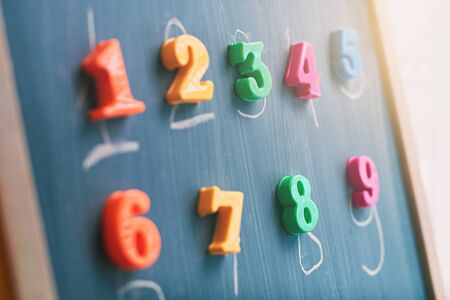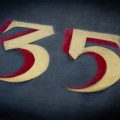Introduction to Feng Shui in America
Feng Shui, an ancient Chinese practice focused on harmonizing individuals with their environment, has found a unique place in American homes and workplaces. Over the past few decades, more people across the U.S. have turned to Feng Shui to create comfortable and positive spaces, hoping for better luck, improved well-being, and enhanced productivity. But as its popularity grows, so do misconceptions about how it works and how to use it effectively within the context of American culture.
The Rise of Feng Shui in the U.S.
Originally rooted in Chinese philosophy, Feng Shui was introduced to the United States in the late 20th century. Its appeal quickly spread beyond Asian-American communities as people became interested in holistic living, wellness trends, and mindful design. Today, you can find Feng Shui principles influencing everything from real estate staging to corporate office layouts.
How Americans Are Adapting Feng Shui
Americans are known for blending traditions to fit their lifestyles, and Feng Shui is no exception. Instead of strictly following ancient rules, many adopt practical tips that suit modern U.S. homes and workspaces. This adaptation often leads to new interpretations—sometimes helpful, sometimes not quite accurate.
Common Ways Feng Shui Is Used in America
| Area | How Feng Shui Is Applied |
|---|---|
| Home Decor | Arranging furniture for better energy flow; adding plants or mirrors for balance |
| Workplace Design | Positioning desks to face doors; creating clutter-free environments |
| Real Estate | Staging homes using Feng Shui tips to attract buyers |
| Personal Wellness | Using colors or crystals believed to support health and happiness |
This growing interest means more Americans are experimenting with Feng Shui every day. However, it also opens the door for misunderstandings about what Feng Shui can really do and how it should be practiced. As we explore these myths in the next sections, its important to remember how cultural adaptation shapes our approach—and why separating fact from fiction matters for getting real results.
2. Myth: Feng Shui is Just About Interior Decorating
Looking Beyond the Surface: Feng Shui’s True Purpose
Many Americans think Feng Shui is simply a trendy way to arrange furniture or pick home colors. While it’s true that home decor plays a part, this ancient Chinese practice is much deeper. At its core, Feng Shui focuses on how energy, or “chi,” flows through your living spaces and how this energy can impact your health, mood, and success.
Why This Misconception Exists
The confusion often comes from popular magazines and social media, where Feng Shui tips are reduced to quick fixes like moving your couch or buying a lucky plant. However, these tips only scratch the surface of what Feng Shui really means.
Feng Shui vs. Home Decor: What’s the Difference?
| Aspect | Feng Shui | Home Decor |
|---|---|---|
| Main Focus | Energy flow and well-being | Aesthetics and style |
| Purpose | Create harmony between people and their environment | Personal taste and visual appeal |
| Approach | Considers direction, elements, and balance | Arranges furniture for looks or comfort only |
| Long-term Impact | Aims to improve life areas (health, relationships, wealth) | Mainly affects visual pleasure or comfort |
The Deeper Side of Feng Shui in American Homes
True Feng Shui uses principles like the Bagua map (an energy chart), balancing the five elements (wood, fire, earth, metal, water), and understanding how light and objects affect your space’s energy. The goal isn’t just a stylish room—it’s about creating a home that supports your physical and emotional well-being.
Examples of Real Feng Shui Practices:
- Bagua Mapping: Placing important items in specific locations to support family or career goals.
- Element Balancing: Adding plants for wood energy or mirrors for water energy—not just because they look good, but to shift the overall vibe.
- Decluttering: Removing unnecessary items to allow chi to move freely, which can reduce stress and boost motivation.
If you want real results from Feng Shui in your American home, go beyond decorating tips. Think about how each choice affects your home’s energy flow and how it makes you feel every day.
![]()
3. Myth: Only Certain Symbols Bring Good Luck
One of the most common misunderstandings about Feng Shui in America is the belief that luck only comes from using specific objects or symbols, like dragons, lucky cats (Maneki-neko), or coins. Many American stores offer these items as “Feng Shui cures,” leading people to think that simply placing them around the house will bring good fortune.
Understanding the Real Meaning Behind Symbols
In traditional Feng Shui, symbols like dragons or lucky cats do carry certain meanings, but they are not magic items that guarantee luck. Their effectiveness depends on how they fit into your space and your personal connection to them. The core idea of Feng Shui is about creating a balanced and harmonious environment rather than collecting specific trinkets.
Common Symbols and Their Perceived Meanings
| Symbol | Common Belief | Actual Feng Shui Approach |
|---|---|---|
| Dragon | Brings power and success | Symbolizes strength, but placement matters more than possession |
| Lucky Cat (Maneki-neko) | Attracts wealth and good luck | Mainly a Japanese symbol; not traditional in Chinese Feng Shui practices |
| Chinese Coins | Increase money flow | Represents wealth, but should be used with intention and placed thoughtfully |
| Bamboo Plant | Ensures growth and health | Bamboo symbolizes resilience; living plants in general can improve energy if healthy and cared for |
The Importance of Intent and Placement Over Objects
The real power of Feng Shui comes from thoughtful arrangement of your space—like ensuring good airflow, reducing clutter, and creating areas that feel comfortable to you. It’s less about filling your home with lucky objects and more about making sure your environment supports your well-being. For example, a clean entryway, well-lit rooms, and organized spaces can have a much bigger impact than any statue or charm.
Tips for Avoiding This Myth:
- Focus on how your space feels rather than what items you display.
- If you choose to use symbols, make sure they have personal meaning to you.
- Avoid cluttering your home with random objects just because they’re labeled “lucky.”
- Consult reliable sources or practitioners who focus on holistic Feng Shui instead of selling products.
By understanding that luck in Feng Shui comes from harmony and intentional design—not just from buying certain symbols—you can create a home that truly supports your happiness and goals.
4. Myth: Feng Shui Is a One-Size-Fits-All Practice
One of the most common misconceptions about Feng Shui in America is that it works the same for everyone, no matter who you are or where you live. You might see popular tips like “always put your bed facing the door” or “paint your front door red,” but real Feng Shui is much more personal than that.
Why Personalization Matters in Feng Shui
Feng Shui is not just about moving furniture or picking certain colors. It’s an ancient practice that looks at your unique energy, your home’s layout, and even factors like birth dates. When you follow general advice from magazines or social media, you might not get the results you hope for—sometimes it can even make things worse!
Common Generic Tips vs. Personalized Feng Shui
| Generic Tip | Why It Might Not Work | Personalized Approach |
|---|---|---|
| Always face your bed towards the door | This can create anxiety for some people and may not fit every bedroom shape or personal preference | Analyze the best direction based on room layout and your personal energy (BaZi) |
| Use red for good luck everywhere | Red is powerful, but too much can be overwhelming, and it isn’t lucky for everyone’s birth element | Select colors based on your personal element and home’s energy map |
| Add water features to boost wealth | If placed incorrectly, water features can actually cause financial leaks or stress | Place water elements only after a thorough analysis of your space and goals |
The Importance of a Personalized Plan
Getting a personalized Feng Shui consultation means looking at your unique situation: Who lives in the house? What challenges do you face? What are your hopes? American homes are often different in style and layout compared to Asian homes, so copying generic tips doesn’t always fit.
Avoiding Disappointment with Generic Advice
If you try one-size-fits-all Feng Shui tips and don’t see results, don’t give up! Instead, consider working with a reputable expert who understands both traditional principles and American lifestyles. They can help tailor a plan that truly supports your well-being, relationships, and success.
5. How to Apply Authentic Feng Shui Principles in the U.S.
Many Americans are curious about Feng Shui, but with so many myths floating around, it can be tough to know whats real and whats not. If you want to bring true balance and harmony into your home or office, its important to understand authentic Feng Shui principles—without falling for common misconceptions. Here are some easy-to-follow tips and guidance for applying genuine Feng Shui in your daily life:
Spotting Real vs. Mythical Feng Shui
| Common Myth | Authentic Guidance |
|---|---|
| You must buy special trinkets or expensive cures | Feng Shui is about arrangement, natural light, and flow—not pricey objects |
| Lucky bamboo or money frogs guarantee wealth | No object can “guarantee” luck; focus on decluttering and good energy flow |
| All doors must face a certain direction | Work with your homes natural layout; improve entrances by keeping them tidy and welcoming |
| Red is always the best color for good fortune | Choose colors that feel right for you and fit your space; Feng Shui adapts to your lifestyle |
Accessible Tips for Everyday Feng Shui
- Declutter regularly: A clean, organized space helps energy move freely and feels more inviting.
- Let in natural light: Open curtains during the day and use mirrors wisely to reflect light into darker corners.
- Create comfortable entryways: Your front door is where energy enters—keep it clear of shoes, packages, and clutter.
- Balance furniture arrangement: Make sure seating areas promote conversation and movement (avoid blocking walkways).
- Add plants mindfully: Healthy plants bring vitality, but don’t overcrowd windowsills or tables.
- Personalize your space: Authentic Feng Shui should reflect your personality—use artwork, photos, and objects that make you feel happy.
How to Find Reliable Feng Shui Advice
- Check credentials: Look for practitioners who have studied with reputable schools or organizations.
- Avoid one-size-fits-all solutions: Genuine advice considers your unique space, lifestyle, and needs—not generic rules.
- Ask questions: A true expert will explain recommendations clearly, without insisting on buying specific products.
- Cultural sensitivity matters: Good Feng Shui adapts principles respectfully to American homes and workplaces.
If you stay open-minded but skeptical about “quick fixes,” youll find that authentic Feng Shui can genuinely support well-being and comfort—in any American setting.


